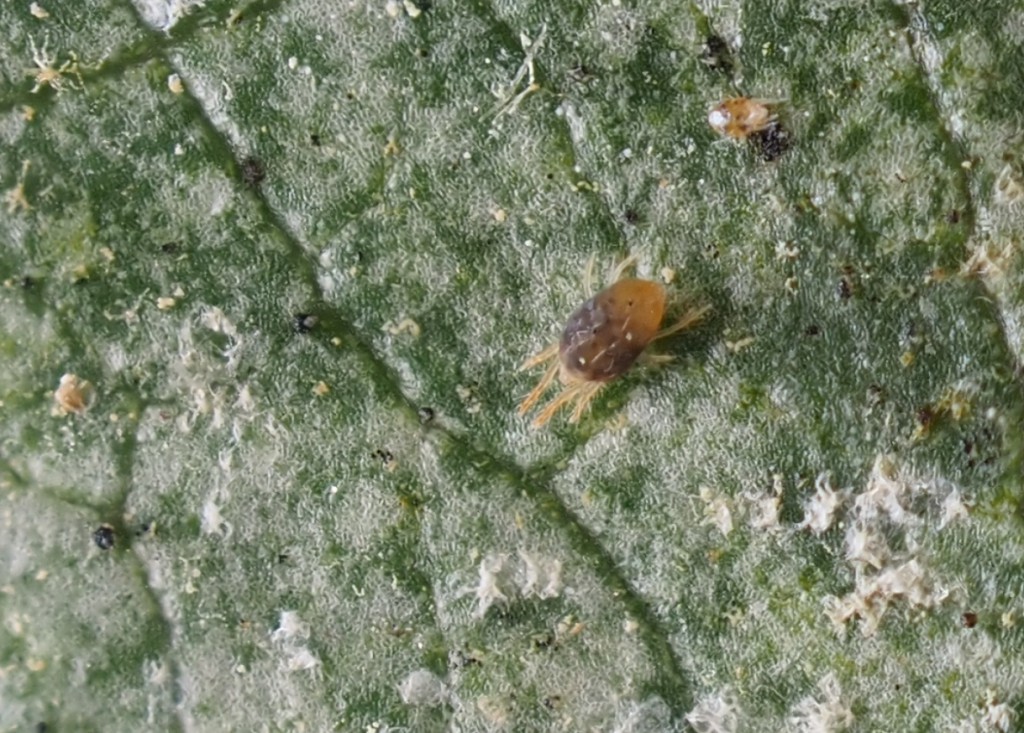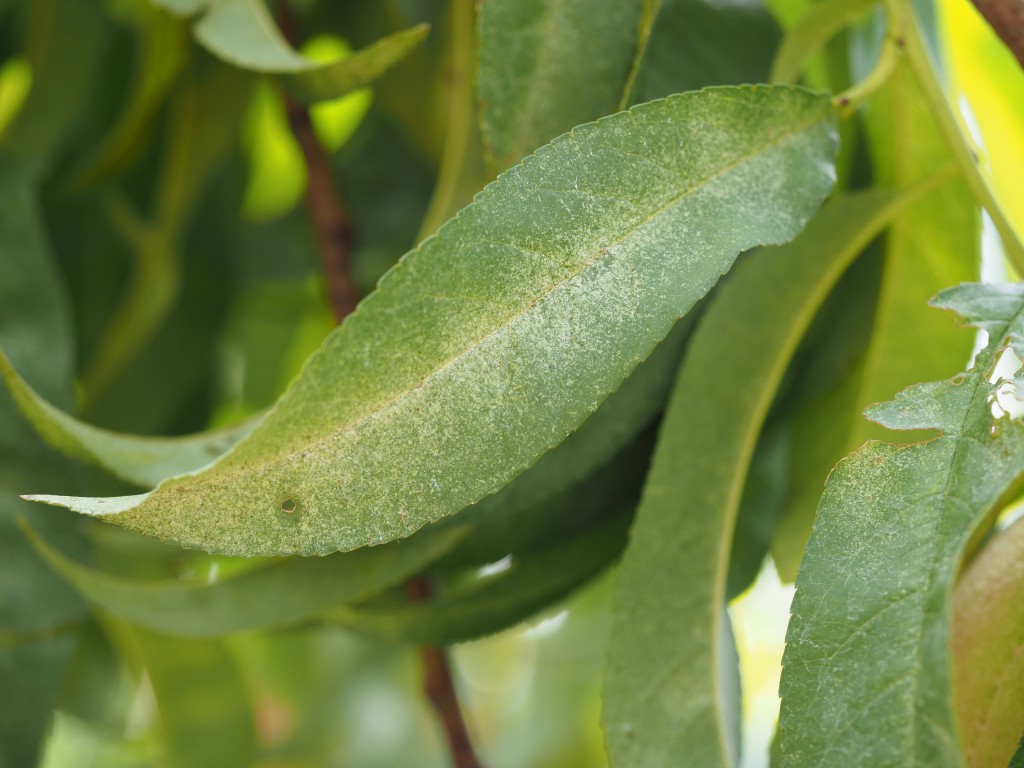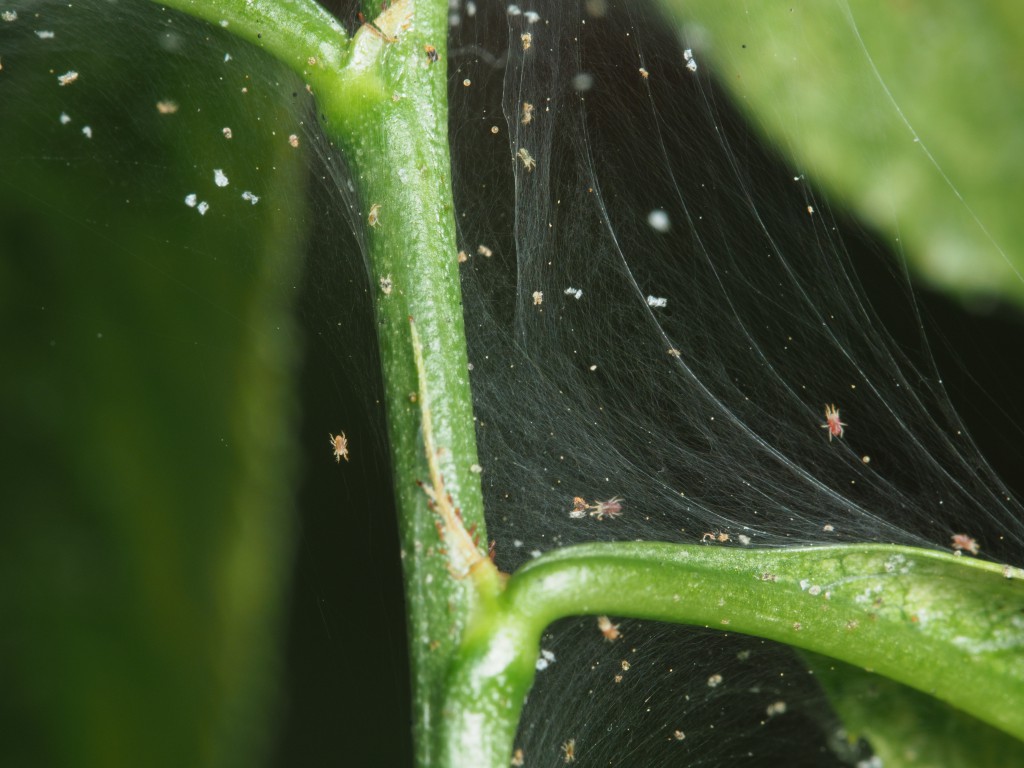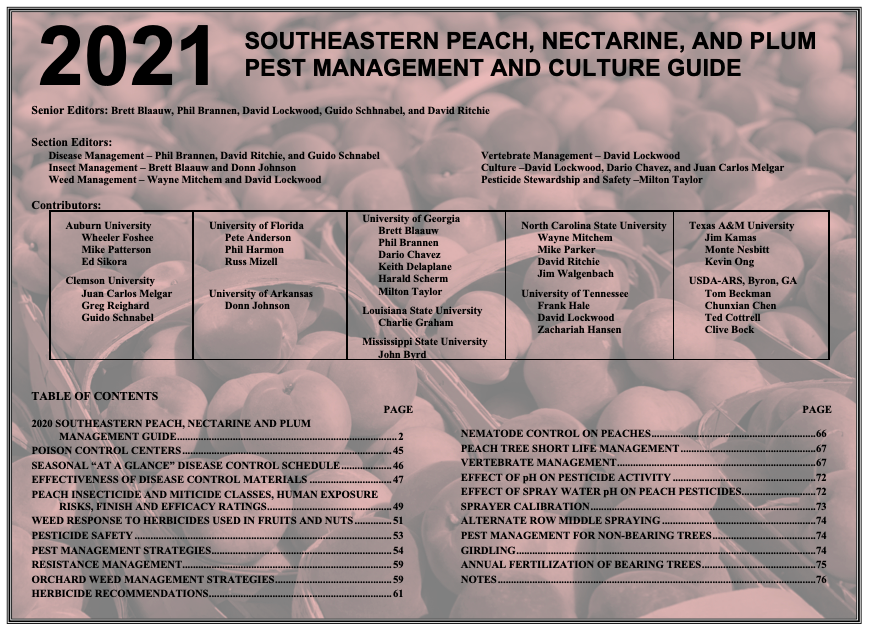Hello everyone,
With the hot, dry weather we were having in May, I have received some reports of mites flaring up in orchards. This is unfortunately not surprising as hot, dry weather is perfect for mite reproduction and development. Hopefully, the rain we have been having we knock back populations, but just in case we still see high numbers, I wanted to update everyone with some management options

Mite damage is primarily foliage based. Damage to leaves appears as a general “bronzing” of the leaf, as the mites puncture and ingest the contents (including the green chlorophyll) of the plant cells.

Spider mites also construct webs, which can be extensive in heavily infested trees.

Thankfully, peaches in general, are much more tolerant than other orchard fruits to mite pressures. They can withstand mild to even relatively high mite infestations, but significant bronzing and webbing can lead to defoliation. If heavy mite pressure continues for a long period without control, and moderate to substantial defoliation occurs, trees can potentially experience a reduction in vigor, a markedly lower fruit yield, and a overall decline in health the following year.
The University of California has an excellent monitoring and treatment decision model, which can be found here: https://ipm.ucanr.edu/PMG/r602400111.html
In addition, mite infestations can be a nuisance to fruit pickers. In this case, management may be needed regardless of potential injury to the trees/fruit.
As such, targeted applications of miticides can be used as needed. The preferred choices are curative miticides (e.g. Acramite, Nexter, or Envidor) used in rotation. If adults are well managed, but eggs are still present, then a preventative miticide (e.g. Zeal) may be used to help control the remaining eggs. If multiple miticide applications are made, BE SURE TO ALTERNATE/ROTATE active ingredients, as mites readily develop resistance to miticides.
Although easier said than done, avoid over-application of pyrethroid in the summer, as these sprays have a tremendous negative impact on predatory mites, while minimal long-term impact on pest mite populations, which can lead to subsequent mite flareups.
For more information about mite management, please check out the peach management guide.
Please pardon the punny title. If you have any questions or concerns regarding mites, please don’t hesitate to let me know.
Take care everyone!
